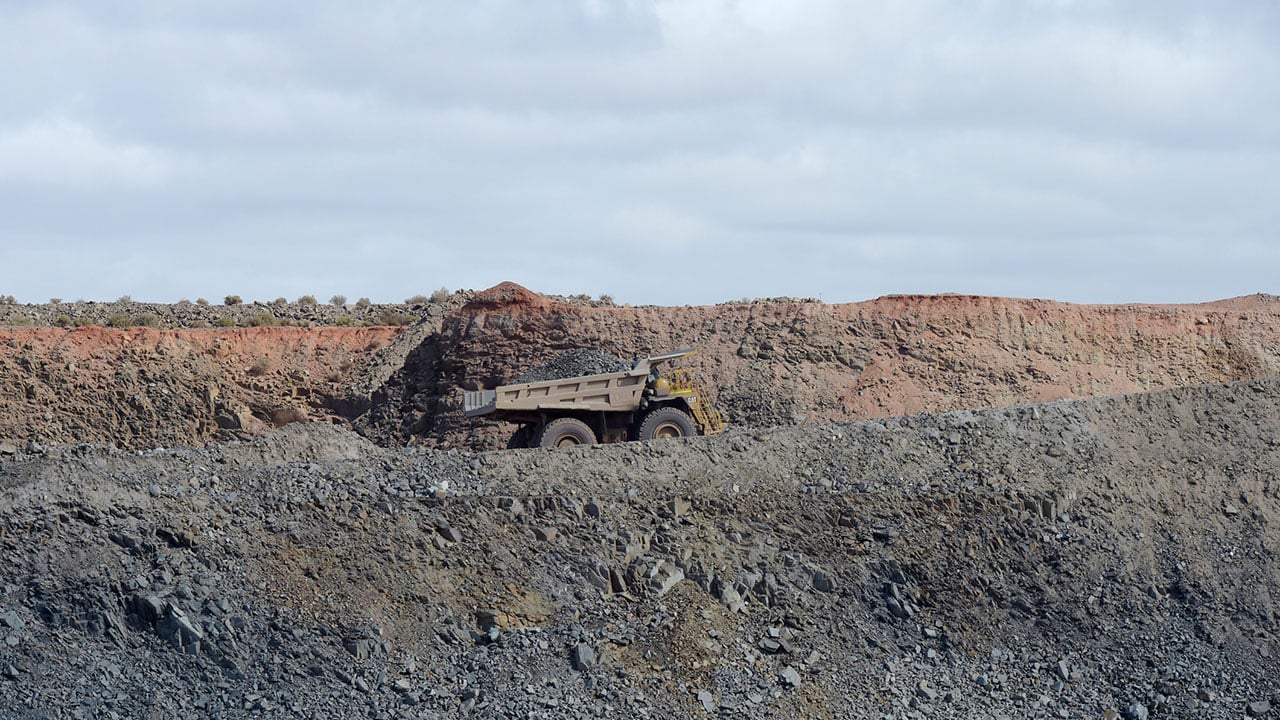
Mexico will eventually have to resort to private companies to exploit lithium: experts
Photo: Carla Gottgens / Getty Images / Bloomberg
In Mexico, there is only one lithium project under exploration in Sonora that has cost almost $300 million in 12 years and not a single gram has been extracted.
As experience indicates and as happened in Bolivia, the Mexican State will, at some point, have to make agreements with private companies to exploit and take advantage of lithium, since the technical and practical capacities are limited in the known deposits.
On April 20, the reform to the Mining Law was approved to nationalize lithium and make its use the exclusive property of the State. The government will create a company for the exploration and exploitation of lithium.
“Something important to consider with Mexico is that for nationalization, what is being discussed is the lack of capacity to exploit this resource efficiently. Currently, as a country and from the government, we do not have the technology, experience, and economic resources to invest in the costs of production network to exploit this metal, which is a major difficulty for the economic success of these projects,” says Aleida Azamar Alonso, a researcher at UAM Xochimilco.
“Just before the coup d’état against Evo Morales, there was already talk in the government that they were going to make agreements with private companies,” she said.
So far in Mexico, there is only one lithium project in exploration, Bacanora Lithium in Sonora, which has cost almost 300 million dollars in 12 years, and not a single gram of this mineral has been extracted, and another 400 million dollars have yet to be invested in this project.
“It is worth asking ourselves: can the State, the government, face a challenge of this magnitude in the assumption of finding several deposits similar to the one in Sonora that are very large, even if we think it is clay? Then, well, to bet widely on this sector, seems to me, that it is complicated. Its potential is still unknown and the lack of clear information by the authorities and also of the companies turns this subject into an issue that for any investment would have a very high risk,” the researcher emphasized.
Up to 2010, 69 deposits were known, and by 2021, it was estimated that there were at least 82 more locations with potential and by this year it had grown to 122.
During a Ministry of Environment and Natural Resources (SEMARNAT for its acronym in Spanish) virtual event “Lithium in Latin America. Challenges and opportunities”, where the experience of Bolivia, Mexico, Chile, Argentina, Peru, and Brazil was discussed. Aleida Azamar said that in 2021 a speculative lithium craze was unleashed in the country.
“They deceive us with the supposedly largest deposit in the world and the government looks for more deposits of this resource, that is how they entrusted Flor de María Harp, head of the Mexican Geological Service, to determine the existence of lithium in a little over 82 deposits in one year, and for this, they gave her 60 million pesos, almost 3 million dollars,” she said.
“What does this mean? This is equivalent to having been given a kitchen spoon to ask him to dig an oil well. It is very little money for what he had to do and for the techniques as well,” the researcher pointed out.
He added that Bacanora alone took almost 5 years to establish a consistent method and almost 4 million dollars to determine the amount of lithium it could find in a single deposit; in response, the SGM has already indicated that between 10 and 15 years and several million dollars more are required to determine if any of these deposits are viable.
“There is reasonable evidence that there are several interesting deposits, (...) the problem is that today if we try to see light at the end of the tunnel, I would say that we do not see it and if there is, then what we see is a train coming at us, because most of the samples got are clay and Mexico cannot extract or process, and that would take several more years,” he highlighted.
Jorge Campanini, a researcher at the Documentation and Information Center of Bolivia, said that the Bolivian lithium project has not yet reached the projected expectations, despite its potential. In fact, in recent years, the strategy has changed in using technology (direct extraction), for which the government has called on private companies to develop the salt flats, but there is uncertainty about how they will be involved.
Source: Patricia Tapia Cervantes. (2022, May 12). México tendrá que recurrir eventualmente a privados para explotar el litio: expertos. Forbes México. Retrieved May 12, 2022, from https://www.forbes.com.mx/mexico-tendra-que-recurrir-eventualmente-a-privados-para-explotar-el-litio-expertos/

